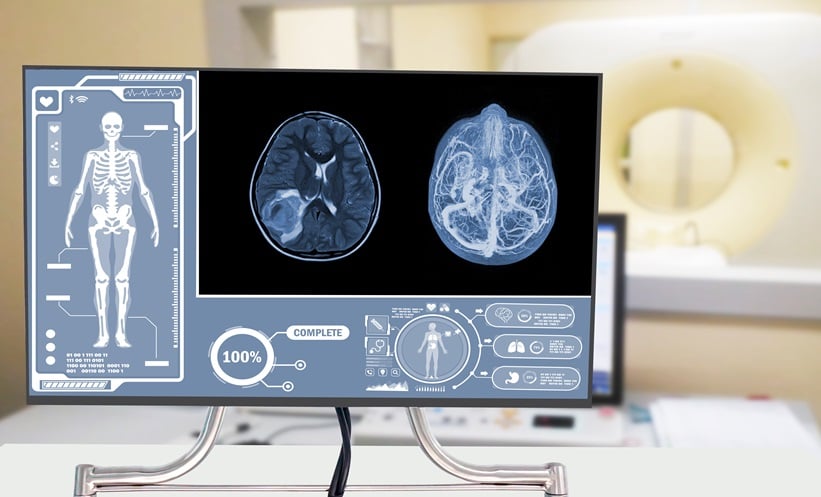A RECENT prospective study assessing the effectiveness of AI in intracranial haemorrhage (ICH) detection has shown that AI assistance did not significantly enhance radiologists’ diagnostic accuracy or reduce report turnaround times.
Conducted at a single medical centre, the study involved 9,954 head CT scans from 7,371 patients, ranging in age from 18–74 years, who underwent non-contrast CT scans between May–December 2021 (mean age: 54.8±19.8 years; 3,773 female, 3,598 male). The research aimed to measure whether AI’s implementation could aid radiologists in detecting ICH more effectively or speed up diagnosis.
The AI triage system was introduced before the first phase of the study, flagging positive ICH results for radiologists via a floating pop-up widget. In phase one, radiologists interpreted the scans without AI assistance, while in phase two, they utilised the AI tool.
The study found no significant improvements in diagnostic performance metrics, such as accuracy, sensitivity, or positive and negative predictive values, when radiologists used AI. Specificity was slightly higher without AI (99.8% versus 99.3%), and report turnaround times for ICH-positive exams remained virtually unchanged, with an average of 147.1 minutes without AI and 149.9 minutes with AI.
Despite initial optimism about the technology’s potential, the study suggests that AI does not improve radiologists’ diagnostic performance for ICH. “The present findings underscore the importance of prospectively evaluating AI-human interaction in real-world clinical settings, where numerous unpredictable factors can influence outcomes in ways not captured by retrospective research designs,” concluded lead author Cody Savage, University of Maryland, Baltimore, USA.
Ada Enesco, EMJ
Reference
Savage CH et al. Prospective evaluation of artificial intelligence triage of intracranial hemorrhage on noncontrast head CT examinations. AJR Am J Roentgenol. 2024; DOI:10.2214/AJR.24.31639








